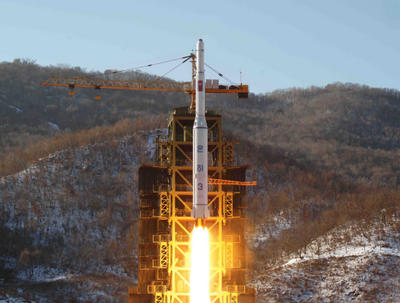(KPA), First Secretary of Workers’ Party of Korea’s (WPK) Central Committee, Chairman of the WPK Central Military Commission, and First Chairman of DPRK National Defence Commission. Kim Jong-un was also awarded the highest military rank of Marshal, a rank previously only held by his father and grandfather. Kim Jong-un has also moved to reassert WPK control of the KPA, replaced party officials with his own loyalists, given more power to those known for reformist views, transferred control of the KPA’s foreign currency earnings to the WPK, and purged or demoted a string of high-level military officials.
These moves to consolidate power could bring about unintended consequences. On the one hand, stacking the ranks with likeminded loyalists could give Kim Jong-un greater room for manoeuvre on his desired policies. On the other hand, all this reshuffling could create a class of political losers, particularly among military hardliners, who could challenge Kim’s rule. However, for the foreseeable future, Kim Jong-un reigns supreme.
As well as consolidating his power, Kim Jong-un faces a great challenge in how to balance continuity with change. Upending the ideology that helped thrust him into power would undermine Kim and his regime’s legitimacy. But simply maintaining the status quo may not satisfy their internal propaganda that 2012 is the year North Korea becomes a strong and prosperous nation. It is also possible that, now North Korea has declared itself a nuclear power, the people may be less willing to sacrifice their living standards.
To this end Kim Jong-un has made some cosmetic changes and there have been rumours and nascent signs of greater economic changes to follow. To give himself a fresh and modern image Kim has hugged his subjects and smiled, given public speeches, allowed a western-style concert with an all-girl band in mini-skirts and an appearance by Mickey Mouse, and paraded out his young wife sporting a modern dress and hairdo. Beyond the cosmetic, rumours swirled about more serious economic reforms, especially the 28 June agricultural reforms. It is unclear at present how the agricultural reforms will progress as at this stage they are experimental and easily reversible. Sceptics will remind us that such reforms have been promised and rolled back many times before. And successful North Korean reform ultimately depends on it expanding trade with new partners and improving its relations with the outside world.
On the diplomatic front, however, chances for engaging the new leader, finding a solution to the nuclear issue and bringing North Korea into the global economy have been squandered. The first rocket launch of 2012, in April, was a double blow — domestic and international — to Kim. Its failure went down poorly with military hardliners, and it destroyed what could have been a new spring with the US under the Leap Day Agreement (LDA), which the two countries negotiated on 29 February 2012. Insider accounts from the US point to the fact that the April launch had already been decided by Kim Jong-il and made known to US negotiators in December 2011 before his death. As such, there was no way Kim Jong-un, fresh in the top job and needing to consolidate his power, could backtrack on his father’s declared intent. Disagreement as to whether the April launch (and a satellite in general) was subject to the LDA points to a failure of communication between the United States and North Korea. Hitoshi Tanaka notes that a direct channel to North Korea’s power centre, and not necessarily through the Ministry of Foreign Affairs, is needed for successful negotiations.
Domestic, not international considerations, were the cause of Kim Jong-un’s need to rectify April’s botched launch. To explain the December launch, some analysts neglected domestic considerations and focused on the timing of leadership changes around the region — including Obama’s re-election in the US, China’s leadership transition in November and Japan and South Korea’s December elections. Many speculated that North Korea was using the December rocket launch as part of a broader military-diplomatic campaign to influence the elections in Seoul and Tokyo and to send a message to Obama and China. Some commentators have even argued that North Korea was deliberately angling to get South Korea’s conservative candidate Park Geun-hye elected because a Park government in Seoul gives North Korea an easily identifiable enemy. But the US and Japan already serve this purpose, and the rocket launch was not a major consideration for South Korean voters. The better view is that the rocket launch was carried out for domestic political purposes. The satellite launch has been trumpeted loudly in the North Korean media as an unmitigated success and looks to have given Kim Jong-un’s legitimacy a great boost, especially among military hardliners.
The big questions now are whether Kim Jong-un will have more room to implement his own polices and will he follow through on economic reform? Given that there may not be another North Korean leadership change for many decades, and that leaders in the US, China, South Korea and Japan are being re-elected or newly coming into office almost simultaneously, there is an unprecedented opportunity to engage with North Korea. It is in the interest of leaders around the region to not overreact to the recent rocket launch, to keep channels of communication and engagement open, and encourage Kim Jong-un toward denuclearisation and economic reform. To maintain a policy of strategic patience under these conditions would be a mistake.
Ben Ascione is a Monbukagakusho Scholar and MA candidate in international relations at the Graduate School of Asia Pacific Studies, Waseda University, a researcher at the Japan Center for International Exchange, and an associate editor at the EAF Japan and North Korea desks.
This is part of a special feature on 2012 in review and the year ahead.

